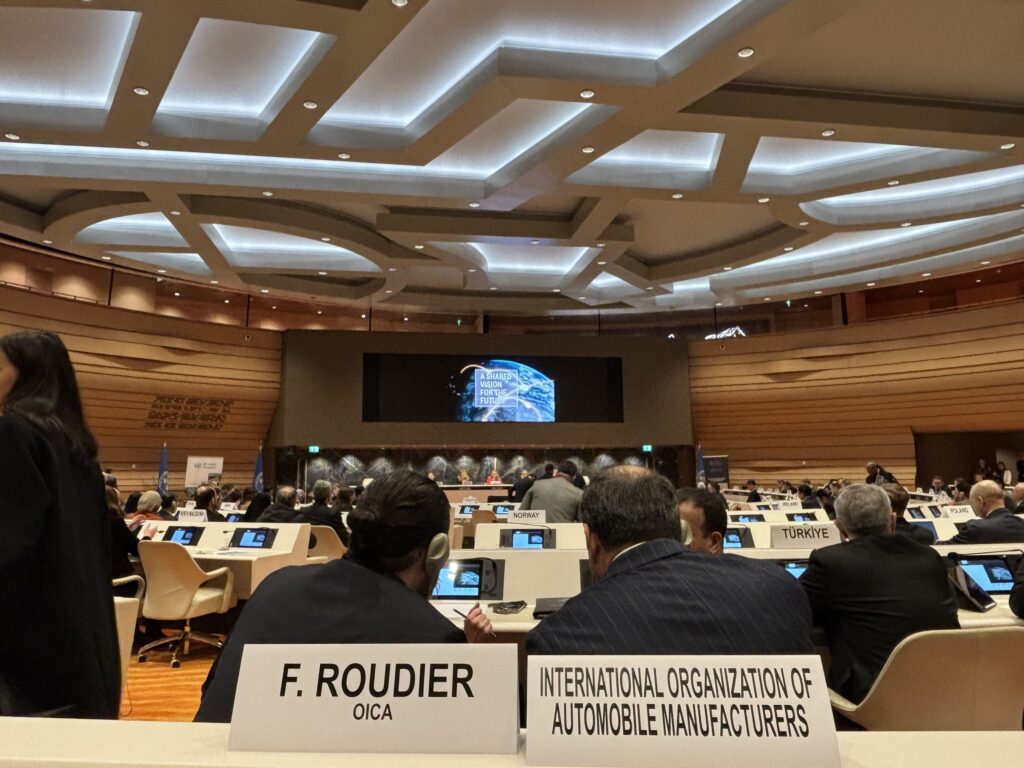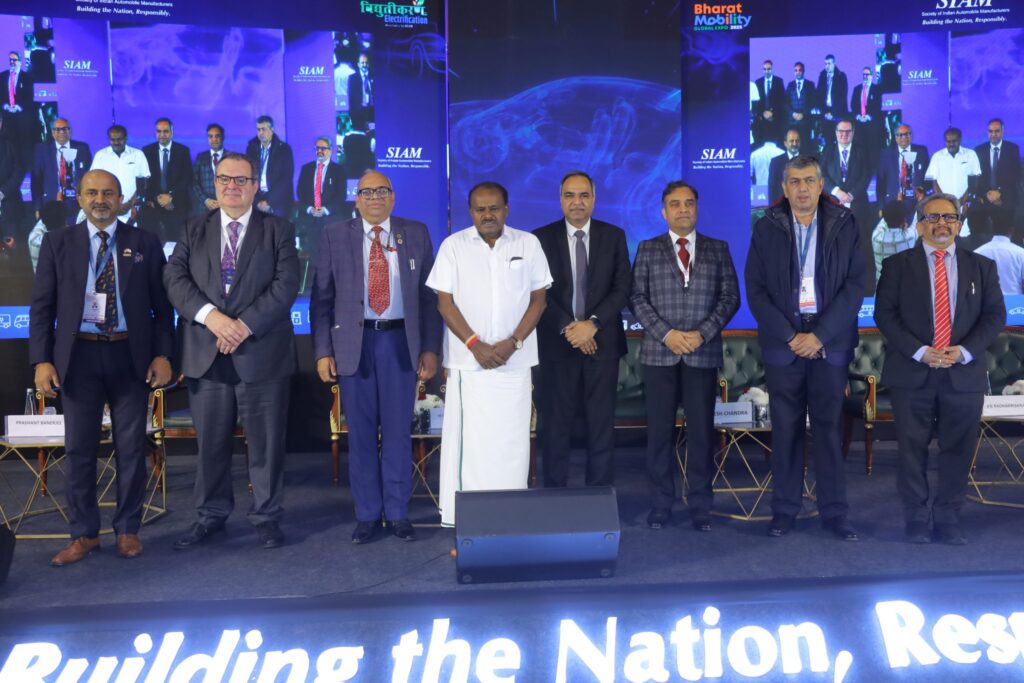OICA Launches New Roadmap for Motor Show Activities

IAA, Munich, September 10, 2025 – The International Organization of Motor Vehicle Manufacturers (OICA) today announced a renewed structure and vision for its motor show activities, reflecting the evolving needs of the global automotive industry and the motor show ecosystem.
UNECE, the 87th session of the Inland Transport Committee (Geneva, February 11, 2025)

It is a privilege and a pleasure to address you today as the new Secretary General of OICA, the International Organization of Motor Vehicle Manufacturers.
François Roudier Speech @ Bharat Mobility January 2025

Honourable Minister Kumaraswamy, dear Members of SIAM, distinguished guests, ladies and gentlemen, and fellow enthusiasts, Good morning.
François Roudier @ China Auto Forum 2024 : “The never-ending automotive revolution”
Good morning, and thank you for being here today. As we stand at the crossroads of innovation and tradition, it is important to remember the incredible journey of the automobile and the constant revolution it represents.
François Roudier appointed Secretary General of OICA and Olivier Fontaine, Technical Director
Paris, France – May 13, 2024 – OICA – the International Organization of Motor Vehicle Manufacturers – is pleased to announce the appointment of François Roudier as its new Secretary General, effective June 1, 2024.
